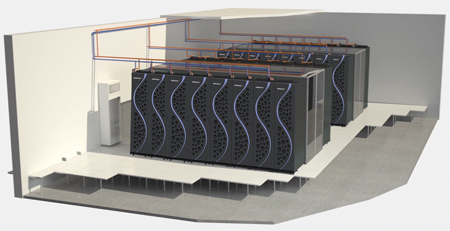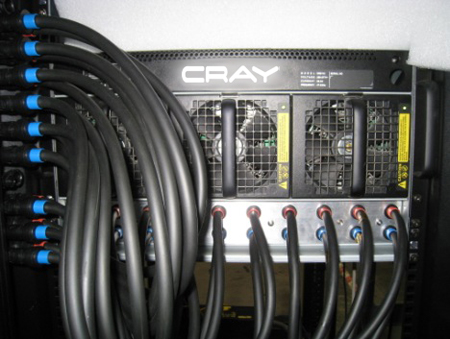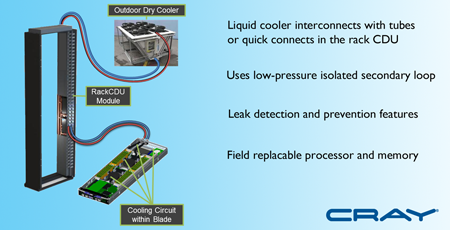Cray Cools HPC with CS300™ Cluster Supercomputers sponsored content
As demand for high performance computing (HPC) continues to grow, so does the demand for energy efficient HPC solutions. Liquid-cooling technology can offer an optimal solution. It balances somewhat higher up-front costs with a much lower lifecycle cost. Using warm instead of cool water has the additional advantage of doing away with a water chiller unit, greatly simplifying the plumbing, and reducing installation costs of an HPC solution.

While warm water doesn't have the chilling capacity of cold water, it can cool even the hottest processors as long as it is in close proximity to the hardware. Water as warm as 45°C (113°F) can effectively cool a modern processor. Like cool water setups, the warmer outlet water from the servers can be reused to heat the datacenter and surrounding facilities.
The other development driving adoption for this technology is the proliferation of high-wattage chips. The demand for performance means server chips are continuing to push the power envelope. Fast, high performance x86 CPUs can easily reach 130 watts. In a dense two-socket or four-socket system, heat can build up quickly. An additional burden has been added with the advent of accelerators: GPUs and coprocessors. Although the chips themselves aren't much hotter than a top-bin CPU, the inclusion of multiple gigabytes of graphics memory on an accelerator card pushes these devices well past 200 watts.
In response to these cooling challenges, Cray offers a warm water liquid-cooled option – the Cray CS300-LC™ cluster supercomputer. The Cray CS300-LC system can reduce energy consumption by 50 percent and provide a PUE below 1.1. Its design uses modular building block platforms and fits into any standard rack cabinet.

The Cray CS300-LC system’s building block blade platform features dual-processor nodes — 60 nodes can fit into a standard 42U rack cabinet. Intel® Xeon® Phi coprocessors and GPU accelerators are supported as well.

The Cray CS300-LC system is built around a standard rack infrastructure making it unique from other proprietary warm water cooling solutions. At the heart of the system is the RackCDU, a rack-level cooling distribution unit which sits inside the rack enclosure and functions as a heat exchanger between the internal isolated cooling loop and the external facility secondary loop. The internal liquid cooling loop directly cools the processors — the primary sources of heat of the system. Dripless quick connectors are used for serviceability and reliability. From the facility manager's point of view, it's plug-and-play with reliable system management, temperature control and monitoring. Cray does the entire installation with outstanding worldwide support and services.
The system can be configured as a fat tree or 3D torus architecture with interconnect options for single or dual rail, QDR or FDR InfiniBand or Ethernet, making it optimized for superior application performance. The Cray CS300-LC system is integrated with Advanced Cluster Engine™ (ACE) management software delivering network, server, cluster and storage management capabilities to report fine-grain system power and temperature.
Designed for end users who require an energy efficient architecture that is highly configurable, scalable, reliable and manageable, the Cray CS300-LC system addresses the sweet spot of the HPC market by delivering an innovative industry standard system that reduces datacenter power and cooling operations costs at a price point that will deliver a faster return on investment.
For a quick intro of the Cray CS300-LC cluster supercomputer series watch this quick video, go to http://www.cray.com/CS300 or simply send us an email, and our sales representatives will be glad to assist you in finding the right products and services to meet your needs.
Portions of this sponsored content have been adapted from an article previously appearing in HPCwire.










